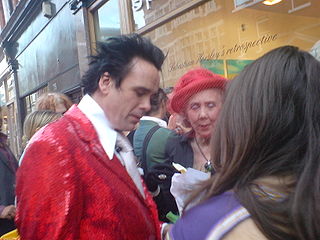A Quote by Albert Camus
An intellectual? Yes. And never deny it. An intellectual is someone whose mind watches itself. I like this, because I am happy to be both halves, the watcher and the watched. "Can they be brought together?" This is a practical question. We must get down to it. "I despise intelligence" really means: "I cannot bear my doubts.
Related Quotes
The intellectual is not defined by professional group and type of occupation. Nor are good upbringing and a good family enough in themselves to produce an intellectual. An intellectual is a person whose interest in and preoccupation with the spiritual side of life are insistent and constant and not forced by external circumstances, even flying in the face of them. An intellectual is a person whose thought is nonimitative.
The conventional explanation for Jewish success, of course, is that Jews come from a literate, intellectual culture. They are famously "the people of the book." There is surely something to that. But it wasn't just the children of rabbis who went to law school. It was the children of garment workers. And their critical advantage in climbing the professional ladder wasn't the intellectual rigor you get from studying the Talmud. It was the practical intelligence and savvy you get from watching your father sell aprons on Hester Street.
My effort here is to create bliss, not happiness. Happiness is worthless; it depends on unhappiness. Bliss is transcendence: one moves beyond the duality of being happy and unhappy. One watches both; happiness comes, one watches and does not become identified with it. One does not say, 'I am happy. Peace, it is wonderful.' One simply watches, one says, 'Yes, a white cloud passing.'
Remember, intelligence is not part of the mind. Intellect is, but intelligence is not; hence, the intellectual is full of mind but in life he behaves very unintelligently. He has a certain expertise, he is trained intellectually to, do a certain thing, his mind is functioning like a computer. But life is not one-dimensional, you cannot exhaust it in one expertise; it is multi-dimensional.
If you are happy, you are happy; nobody asks you why you are happy. Yes, if you are miserable, a question is relevant. If you are miserable, somebody can ask why you are miserable, and the question is relevant - because misery is against nature, something wrong is happening. When you are happy, nobody asks you why you are happy, except for a few neurotics. There are such people; I cannot deny the possibility.
The central fact for me is, I think, that the [role of the] intellectual... cannot be played without a sense of being someone whose place it is publicly to raise embarrassing questions, to confront orthodoxy and dogma (rather than to produce them), to be someone who cannot easily be co-opted by governments or corporations, and whose raison d'etre is to represent all those people and issues that are routinely forgotten or swept under the rug.
I don’t really know what “intellectual” means, but if it means you’ve got a desire to learn, you’ve got a desire to look for things that haven’t been presented to you, then, maybe. I think that “intellectual” is quite an exclusive word. I think it’s just for anyone that has a thirst or a hunger to improve themselves, or a yearning to escape from somewhere to get to a better place.
The moral faculties are generally esteemed, and with justice, as of higher value than the intellectual powers. But we should always bear in mind that the activity of the mind in vividly recalling past impressions is one of the fundamental though secondary bases of conscience. This fact affords the strongest argument for educating and stimulating in all possible ways the intellectual faculties of every human being.







































